Car theft has existed for as long as cars themselves.
The first recorded vehicle theft occurred in Paris in 1896, marking the beginning of a persistent challenge for car owners and manufacturers alike. This incident spurred the development of the first anti-theft measures and highlighted the need to protect hard-earned assets.
For modern car owners, vehicle security remains a never-ending battle. New tactics and technologies constantly emerge, both from thieves and those seeking to outsmart them.
Manufacturers have recognised this struggle, steadily improving car security to ensure owners feel confident that their vehicles—and the goods within—are safe.
Of course, not everyone is looking to compromise your car, but it never hurts to have systems in place to deter thieves or even recover your vehicle if it’s stolen.
Let’s explore how car security has evolved, from its rudimentary beginnings to its advanced modern systems.

The need for vehicle security became apparent as soon as cars hit the road.
The first innovation came in 1900 when the Leach-Biltwell Motor Company introduced a removable steering wheel. This device allowed drivers to detach the steering wheel and carry it with them, making the car undrivable for would-be thieves.
However, this solution wasn’t practical for everyday use, as few drivers wanted to lug around a bulky steering wheel.
In the 1920s, another company, Scripps-Booth, developed the first car locks for their torpedo roadster.
These locks, while innovative, were far from foolproof. They were often easily bypassed, leaving vehicles vulnerable.
It wasn’t until the 1970s that car locks became a reliable anti-theft measure with advanced designs integrated into vehicle manufacturing. Locks are now a standard feature in all cars.
Initially, separate keys were required for locks and ignition, but this changed in the 1960s when single-key systems became widespread.
These early innovations, though imperfect, laid the groundwork for the sophisticated security systems we rely on today.
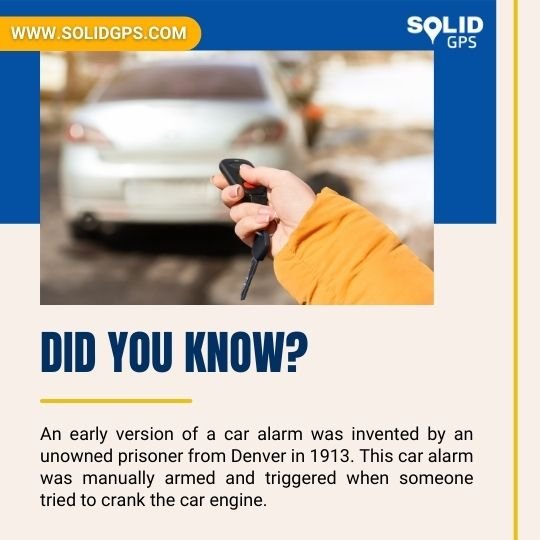
The concept of car alarms dates back to 1913 when rudimentary alarm systems were first developed. These early models used basic mechanisms to deter thieves but were not widely adopted.
It wasn’t until the 1950s that car alarms gained traction, thanks to Victor Helman’s mass-market alarm system.
These alarms worked by triggering a loud noise when a car door was opened without disabling the master switch. The aim was to scare off thieves and alert owners, but they had limitations.
Modern alarms are far more sophisticated, often built directly into the vehicle during manufacturing or sold as aftermarket additions.
Despite their evolution, car alarms are not foolproof. Many people have become desensitised to the sound of alarms, assuming it’s a false activation rather than a genuine theft attempt.
Clever thieves have even been known to trigger alarms intentionally to mask the sound of a break-in.
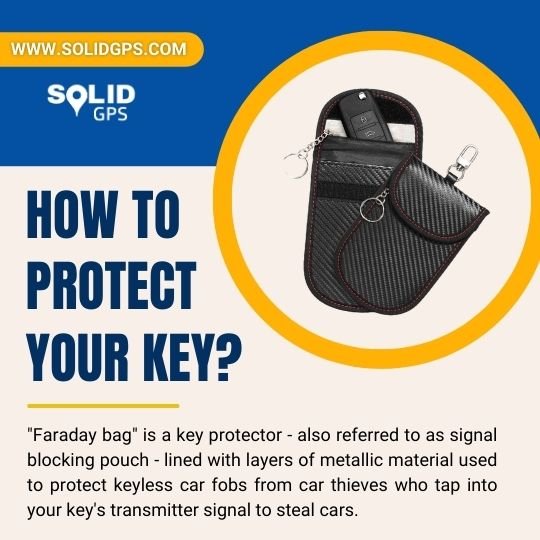
A significant leap in car security occurred in the 1980s with the introduction of keyless entry systems.
Ford debuted a passcode-based entry system in 1980, allowing car owners to unlock their vehicles without a traditional key. Two years later, Renault advanced this concept with remote keyless entry, enabling owners to lock and unlock their cars with a small transmitter.
Keyless entry systems not only enhanced convenience but also added a layer of security. By eliminating physical keys, they reduced the risk of lock-picking.
Today, keyless entry is a standard feature in most vehicles, offering greater protection against theft.
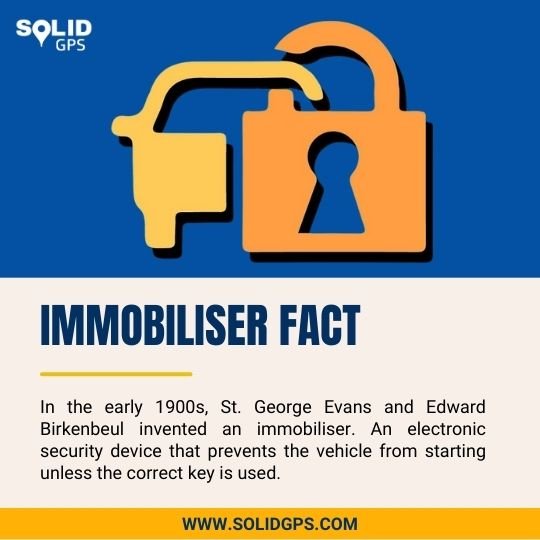
Immobilisers represent one of the most effective car security innovations in history.
Patented in 1918, immobilisers initially prevented the engine from starting without the correct key. In the 1980s, they evolved to include electronic chips embedded in car keys.
These advancements drastically reduced car theft rates, with studies showing a 40% decrease in countries that adopted immobilisers widely.
Modern immobilisers work by disabling the engine unless the correct key or fob is present. This makes hot-wiring nearly impossible and significantly increases the difficulty of stealing a vehicle.
While installation can be costly, ranging from $200 to $500, immobilisers remain a top-tier security feature for modern vehicles.
While immobilisers and alarms offer high-tech solutions, physical deterrents like steering wheel locks and tire clamps continue to play a role in car security.
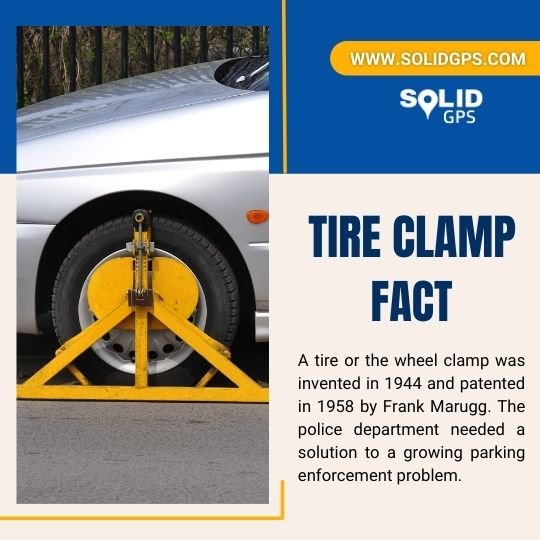
GPS tracking has revolutionised car security by offering real-time location monitoring.
These systems allow owners to track their vehicle’s location, receive alerts for unauthorised movement, and even disable the engine remotely in some cases.
GPS trackers are especially useful for recovering stolen vehicles quickly, often within hours of a theft.
With a wide range of options available, owners can choose a tracker that fits their budget and security needs.
As cars become increasingly software-driven, cybersecurity has emerged as a critical concern.
Modern vehicles often feature internet connectivity, autonomous driving capabilities, and integration with smart devices—all of which make them vulnerable to hacking.
To counter these threats, manufacturers are implementing robust cybersecurity measures, including encrypted communication, firewalls, and intrusion detection systems.
These tools are designed to protect sensitive data and ensure that hackers cannot take control of a vehicle remotely.

The rise of self-driving cars presents new security challenges.
Autonomous vehicles rely on complex software systems to navigate and make decisions, making them prime targets for cyberattacks. Hackers could potentially manipulate these systems, causing accidents or stealing sensitive data.
To address these risks, developers are working on advanced cybersecurity solutions tailored to autonomous vehicles.
These measures aim to protect passengers and ensure the safety of self-driving technology.
Looking further into the future, quantum computing poses a significant threat to current encryption methods.
As quantum computers become more powerful, they could break existing cryptographic systems, rendering many modern security measures obsolete.
To stay ahead of this challenge, researchers are exploring quantum cryptography. This cutting-edge technology leverages the principles of quantum mechanics to create virtually unbreakable encryption.
In the coming decades, quantum cryptography could become a standard feature in vehicle security systems, ensuring that cars remain safe from even the most advanced cyber threats.
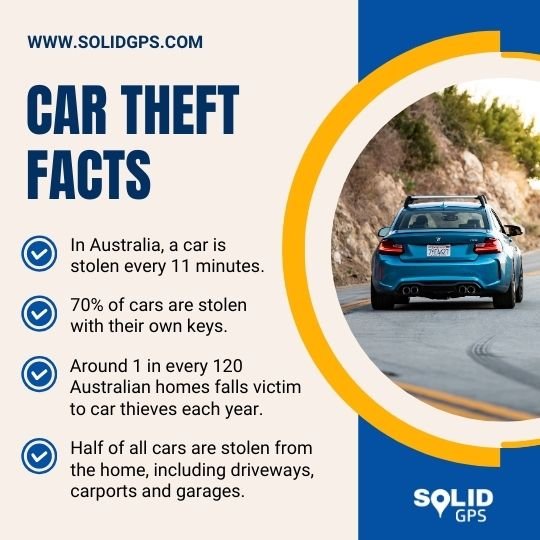
Car security has evolved significantly since the first recorded theft in 1896, with innovations ranging from basic locks to advanced GPS tracking and emerging technologies like quantum cryptography.
As car thieves adapt to new challenges, staying ahead requires embracing proactive measures and modern security solutions.
Whether it’s a physical deterrent or a cutting-edge GPS tracker, each layer of protection enhances vehicle safety.
As the future of car security unfolds with advancements like self-driving cars and next-generation technology, staying informed is key to protecting your vehicle.
To help you navigate these changes and choose the right tools, explore our FAQs below for expert insights on vehicle security.
All you need to do is download the Solid GPS app from the Google Play Store (Android 4.4+) or the App Store (iOS 13+).
You can also track your vehicle on any device connected to our website, from your tablet to your computer.
Yes, you can cancel your subscription during your 31-day free tracking period, and you won’t be charged anything.
You can easily cancel your subscription in your account settings or by contacting us via email or phone.
We guarantee that Solid GPS works in Australia and New Zealand, and we also support payments in each currency.
Yes, you can. All you need to do is connect your Solid GPS tracker to your vehicle through a standard USB port.
The battery in your tracker is rechargeable, so there’s no need to replace it.
You’ll also receive reminders to your phone and email when your tracker’s battery is low, at 30%.
Since the tracker is recharged infrequently (every 3, 6, or 12 months), it will last longer than most electronic devices, with the battery beginning to deteriorate after 500 recharges.
Your tracker is designed to be tucked away inside your vehicle, hidden, and away from any harsh elements.
However, if you’re concerned that it might come in contact with dust or water, we suggest putting it in a sealed container or a ziploc bag to give it some extra protection.
Yes, and it’s super easy to keep track of all your trackers – you can add as many as you want to your account.
To make sure each one is easy to identify, you can give each of them a unique name and colour.
This can be done quickly by heading over to the account settings section on the Solid GPS app or website.
The tracker does not make any noise and it ONLY emits light while being recharged.
Your Solid GPS tracking device uses the full Telstra & Vodafone network in Australia and Spark & Vodafone network in New Zealand, whichever has the strongest signal at that point in time.
If your tracker enters an area with no mobile coverage, don’t worry! It will save the locations your vehicle travels to and will upload where it went when your vehicle is back in an area with coverage.
The subscription covers the cost of the SIM card inside your tracker and the data it uses.
Instead of negotiating with telcos and finding the best SIM card and plan prices, we organise your SIM card for you, all for a flat competitive rate.
We’re able to achieve such a low-cost subscription because we have tens of thousands of SIM cards in our system, unlocking bulk discounts for you!
The subscription also covers the cost of the Solid GPS app, local customer support, & so much more.
We also don’t plan on and have never increased the price of our subscription.
As your vehicle moves, your tracker will update its location every 2 minutes and gradually increase the time between updates to every 10 minutes.
You can also turn on ‘Emergency Mode’ to lock the tracking intervals to every 2 minutes.
Additionally, you can set geofences/boundaries to receive alerts if your vehicle begins to move.
To see what the dashboard/app looks like, please create an account at solidgps.com/registration/, and you’ll be taken to our demo dashboard.
Yes, multiple people can download the same app and log in to the same account to view the same tracker.
You can also securely share your tracker with friends or family through our sharing feature.
For example, if you’re going on a trip, share your private tracking link with others, and they can see where you are without being able to change any settings. You can cancel this link at any time too.

Solid GPS is based in Melbourne, Victoria. All design, development and assembly is done in-house.
© Copyright 2025 Solid GPS
Privacy Policy | Terms & Conditions
Get $50 Off The MEGA Solid GPS Tracker.
(And free shipping).
Only Available Until The 27th of November.
Just enter your email below and we’ll send it through.
You’ll also get our emails every once and a while.
We won’t share your info with third parties and you can easily unsubscribe at the bottom of every email.